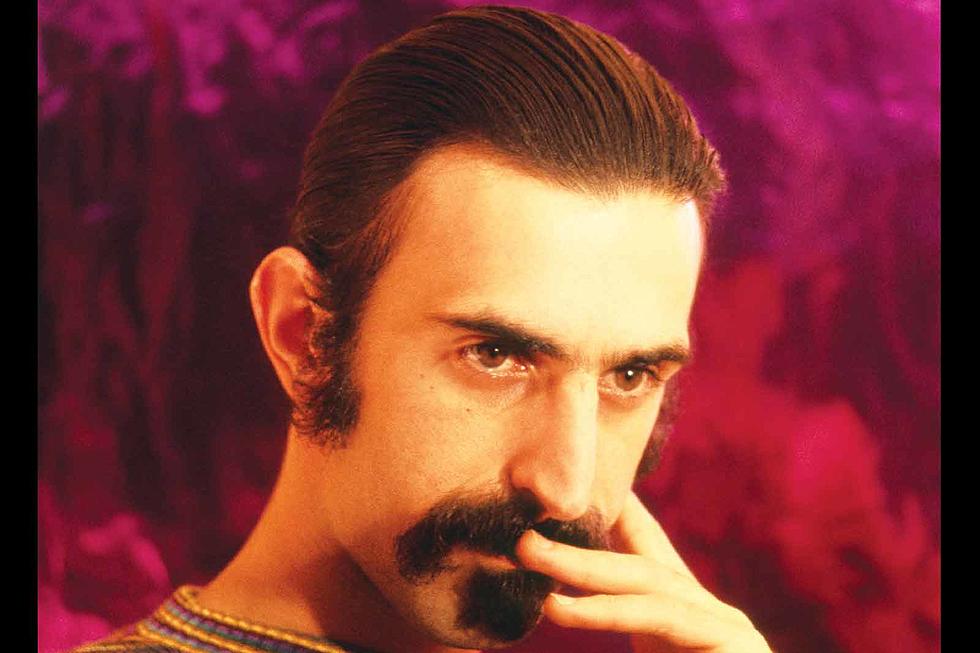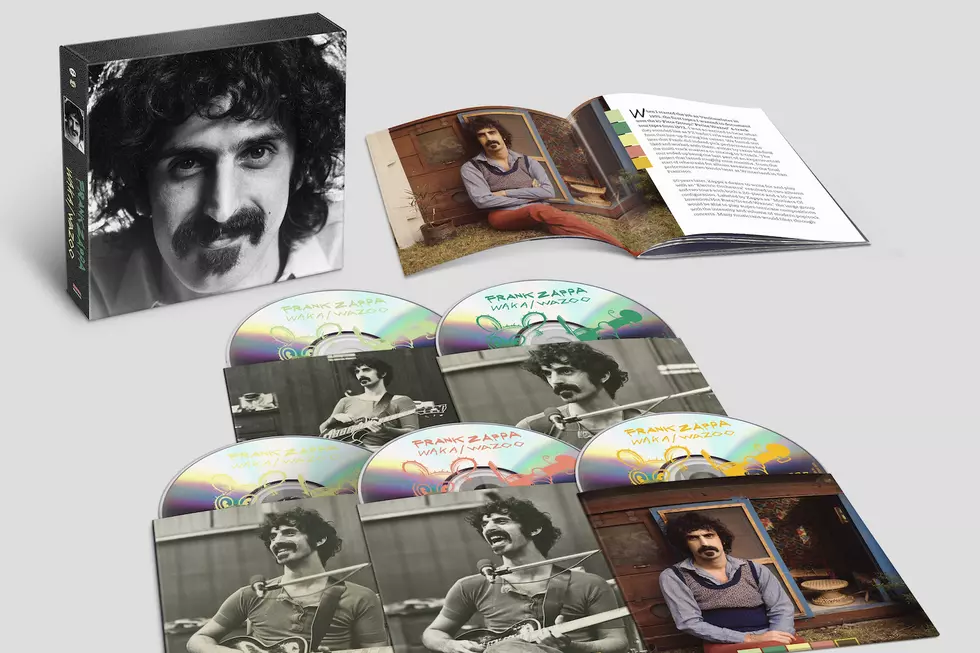
50 Years Ago: Frank Zappa Combs the Archives for ‘Weasels Ripped My Flesh’
Frank Zappa disbanded the Mothers in 1969, with the band mired in financial struggle, personality clashes and creative squabbling. But the bandleader was as crafty as he was prolific: Determined to make the most of unused live and studio recordings, Zappa started tinkering with the archival material, resulting in two 1970 LPs, Burnt Weeny Sandwich and its demented younger brother Weasels Ripped My Flesh.
Zappa's original plan for the post-Mothers era was to release all the material in a massive, 12-record set. But he nixed the idea after considering the financial logistics.
"We did a cost breakdown on doing that and in order to press 10,000 of each of the 12 records, plus coverage – it would come to about a quarter of a million dollars," Zappa said in a 1970 interview with Jazz and Pop. "Now anybody who would invest a quarter of a million dollars in any Mothers of Invention project on a record level has got to be desperate. So, we just tossed that one into the garbage can.
"What I've been doing is ripping up the 12 albums, which were already edited – I had them ready to go. Chopping them up and I put together a new album called Weasels Ripped My Flesh – the cover of which is right here. So Weasels Ripped My Flesh is an all-live album. Most of the music on it – I'd say 80 percent of it – is group improvisation not just accompaniment with solos, but where the group was conducted into a spontaneous piece of music."
Weasels Ripped My Flesh was released on Aug. 10, 1970, but time hasn't diminished its ability to shock and fascinate. The album blends tracks recorded from 1967 to '69 – blurring the line between stage and studio, rock and jazz, noise and melody. It's one of Zappa's most difficult albums – and while not an ideal starting point in his massive discography, it's loony fun getting swallowed up in the sprawl.
The LP commences with the atonal jazz madness of "Didja Get Any Onya?," which – on the later CD reissue – segues into the sublime 7/8 riff of "Charles Ives," the foundation of Captain Beefheart and the Magic Band's "The Blimp." It's a jarring introduction, but the material only gets more violently absurd – see the ridiculous moaning of "Prelude to the Afternoon of a Sexually Aroused Gas Mask," the manipulated tape noise that closes "Dwarf Nebula."
Listen to the Mother of Invention's 'My Guitar Wants to Kill Your Mama'
But part of Frank Zappa's genius was managing the extremes of his personality. Throughout the chaos, he ventures into sultry blues ("Sugarcane" Harris' violin-driven rendition of Little Richard's "Directly from My Heart to You"), intricate guitar interludes ("Toads of the Short Forest"), and raw rock heft. "My Guitar Wants to Kill Your Mama" is one of Zappa's most beloved songs, driven by brash brass and a furious guitar solo. It even became a minor hit when his guitarist son Dweezil recorded a cover version for 1988 solo LP.
Zappa would explore jazz themes more overtly under his own name, veering into big-band fusion with acclaimed albums like 1973's The Grand Wazoo. But as he explained in a 1970 interview with Sounds, those influences had been there all along.
"One of the reasons why the Mothers have never been associated with jazz is because most reviewers have never listened to jazz," Zappa said. "They wouldn't guess unless it said on an album cover that we were influenced by jazz. If I had stated on an early album that I had been influenced by Eric Dolphy or Archie Shepp, then for the last five years they would have been writing about jazz influences instead of Stravinsky influences. ... The group has always been encouraged in jazz-type improvisation within a framework of atonal music. The trouble is that most of the audience thinks of jazz as going from Louis Armstrong to Blood Sweat and Tears. They don't know about today's self-determination music."
Frank Zappa would revive the Mothers brand later that year, recruiting a hoard of new members – some legendary (keyboardist George Duke), some infamous (three former Turtles, including vocalists "Flo and Eddie"). The band's awkward transitional phase – documented on LPs like 1970's Chunga's Revenge and the 1971 soundtrack 200 Motels – only illustrates the original line-up's charm and potency.
See Frank Zappa and Other Rockers in the Top 100 Albums of the '60s
More From Ultimate Classic Rock









